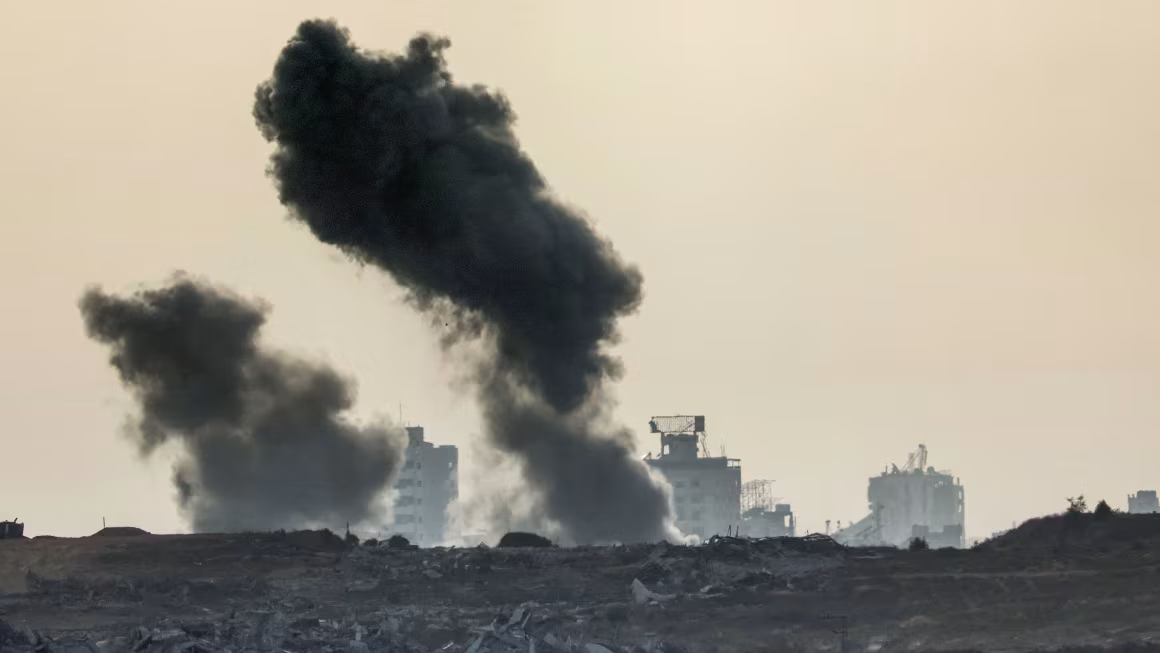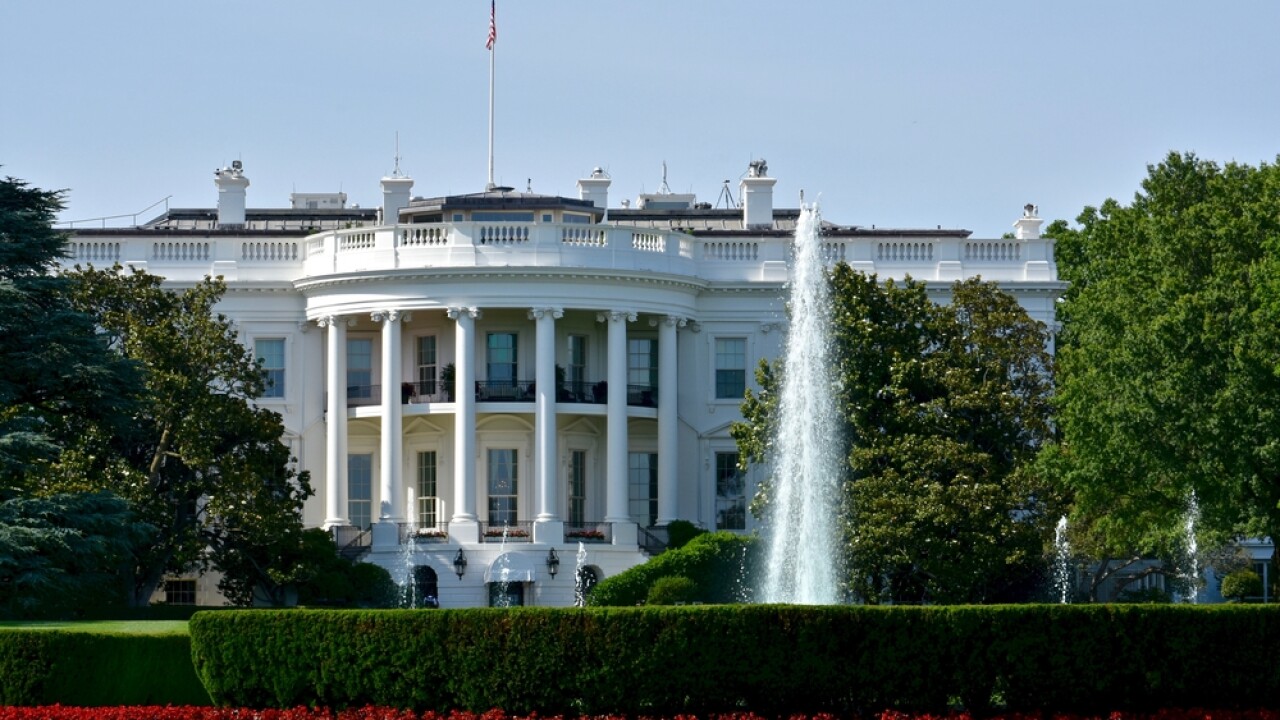Biden Administration Faces Scrutiny Over Anti-Personnel Landmine Policy in Ukraine
November 20, 2024 at 9:00 PM
2 minutes read

The Biden administration is under increased scrutiny for its policy on anti-personnel landmines, particularly concerning their use in Ukraine amid the ongoing conflict with Russia. Critics and human rights advocates are raising concerns about the continued deployment and stockpiling of these weapons, which have long-term humanitarian consequences.
Policy Background
Anti-personnel landmines are controversial for their indiscriminate nature, often injuring civilians long after conflicts have ended. While the U.S. has made strides in limiting their use globally, the Biden administration has opted for a more nuanced approach in Ukraine, allowing the continued use of landmines in specific circumstances to support Ukrainian defense efforts against Russian aggression.
The White House’s policy marks a deviation from earlier commitments to align more closely with the 1997 Ottawa Convention, an international treaty banning anti-personnel mines. The U.S. remains one of the few nations not to sign the treaty, citing national security concerns.
Human Rights Advocacy
Human rights organizations and disarmament advocates argue that landmines disproportionately harm civilians and hinder post-conflict recovery. Mary Wareham, advocacy director for Human Rights Watch's arms division, stated,
Landmines create a legacy of suffering, especially for children and communities rebuilding after war. The U.S. should be leading efforts to eliminate their use, not perpetuating them.
Critics also question the ethical implications of U.S. support for their use in Ukraine, even in a defensive capacity, highlighting the long-term risks posed to Ukrainian civilians.
U.S. Position on Ukraine
The Biden administration defends its policy as a necessary measure in the context of Ukraine's fight against Russian aggression. Officials argue that landmines provide a strategic advantage in slowing advancing forces and protecting key areas. They also emphasize that modern landmine technologies are designed to self-deactivate after a set period, reducing the risk of harm to civilians.
A senior administration official noted,
We remain committed to reducing the impact of these weapons on civilians, but we must also ensure Ukraine has the tools needed to defend its sovereignty and territorial integrity.
Global Perspective
The U.S. policy contrasts sharply with that of most Western allies, who have fully embraced the Ottawa Convention and eliminated landmine use from their arsenals. This divergence raises questions about international cooperation and U.S. leadership in arms control efforts.
The issue is particularly pressing as Ukraine continues to recover from widespread destruction caused by the war. Rebuilding efforts are complicated by unexploded ordnance and landmines left behind in liberated areas, posing ongoing threats to civilians.
Calls for Change
Advocates urge the administration to reconsider its stance, pushing for a complete ban on anti-personnel landmines and greater alignment with international norms. They argue that U.S. leadership in disarmament is critical to setting a global standard and reducing the humanitarian toll of landmines in conflict zones.
In Congress, bipartisan lawmakers have also expressed concerns, calling for a review of current policies and increased oversight of U.S. military support to Ukraine.
Looking Ahead
As the war in Ukraine continues, the Biden administration faces growing pressure to balance military strategy with humanitarian considerations. The debate over anti-personnel landmines underscores the broader challenge of maintaining global leadership while addressing immediate security needs.
For Ukraine, the presence of landmines adds another layer of complexity to its recovery efforts, highlighting the urgent need for demining initiatives and international cooperation to protect civilians.
Up next

Trump Announces Israel’s Agreement to 60‑Day Gaza Ceasefire, Challenges Hamas to Sign On
July 2, 2025
4 minutes read




Trump Administration Plans Federal Agency Consolidation, Addresses BLM Plaza Concerns
November 29, 2024
4 minutes read

Musk, Ramaswamy Weigh in on Federal Regulations Amid Dogecoin Market Volatility
November 28, 2024
2 minutes read

Trump Administration Accelerates Transition, Announces Swift Cabinet Picks
November 27, 2024
2 minutes read


Trump’s Picks of Tulsi Gabbard and Pete Hegseth Reflect Bold but Controversial Cabinet Strategy
November 25, 2024
4 minutes read

Trump Eyes Contentious Nominees Hegseth, Gabbard, and RFK Jr. for Key Positions
November 24, 2024
3 minutes read

Lori Chavez-DeRemer Considered for Labor Secretary Role in Potential Trump Administration
November 23, 2024
2 minutes read

Trump’s Potential Plan to Restructure FBI Raises Concerns Among Experts
November 22, 2024
3 minutes read

Pete Hegseth Denies Allegations in Police Report Amid Speculation About Defense Secretary Role in Trump Administration
November 21, 2024
2 minutes read

Republican Nancy Mace Criticizes Anti-Transgender Bathroom Ban at U.S. Capitol
November 19, 2024
2 minutes read

Matt Gaetz Reportedly in Contention for Attorney General Role Amid Political Tensions
November 18, 2024
2 minutes read

Trump’s Foreign Policy Vision Promises Bold Realignments and Global Shifts
November 17, 2024
4 minutes read


Trump Rolls Out Controversial New Cabinet Picks for Second White House Term
November 14, 2024
4 minutes read

Elon Musk and Vivek Ramaswamy to Lead Trump’s New ‘Department of Government Efficiency’
November 13, 2024
2 minutes read

Malaysia’s PM Anwar Ibrahim Says New US Tariffs Could Impact Key Microchip Exports, Despite BRICS Ties
November 13, 2024
2 minutes read



Trump Selects South Dakota Governor Kristi Noem as Homeland Security Secretary
November 12, 2024
1 minutes read


White House Rushes to Allocate Key Legislation Funds Before Trump Takes Office
November 11, 2024
3 minutes read

Trump Set to Receive Classified Briefings Again Despite Previous Charges
November 11, 2024
3 minutes read